It’s officially cicada season! This means that the large-bodied, crunchy exoskeleton-ed insects that hum midday melodies and emerge from the ground are arising again.
You know the ones, they’re quite loud and like to hang out in trees. They can’t sting or bite, but disregard personal space by flying straight into your arm, neck, or face without even introducing themselves first.
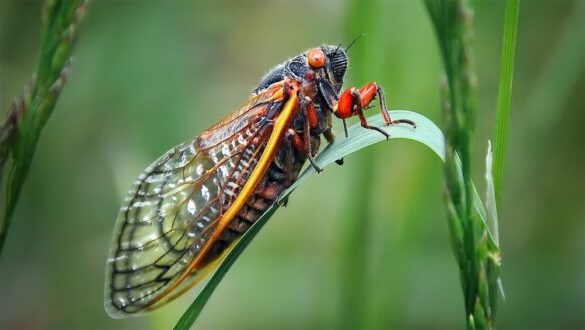
However, this year we won’t only experience the annual emergence. While cicadas come along every year, this is the year when Brood X, or the Great Eastern Brood, will emerge in extremely large numbers. The “annuals” emerge each year at different times, staggered throughout their entire season.
Alternatively, Brood X has a synchronized emergence, so they will all erupt from the ground at around the same time. Brood X are periodical cicadas that have been living underground as nymphs for the past 17 years. They will be black, orange, and red, while the annuals are black and green.
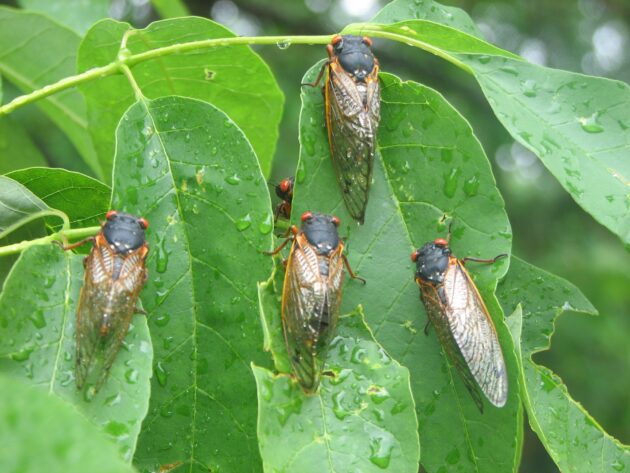
So this summer, in 15 states across the East Coast and Midwest, billions of Cicadas will simultaneously make their way to the surface to mate and lay their eggs before dying off a few weeks later. Periodical cicadas spend the majority of their lives underground as larvae but only a short amount of time as the flying adults we see in trees.
The states that are most likely to see the emergence of Brood X are Delaware, District of Columbia, Georgia, Illinois, Indiana, Kentucky, Maryland, Michigan, Ohio, New Jersey, New York, North Carolina, Pennsylvania, Tennessee, Virginia, and West Virginia.
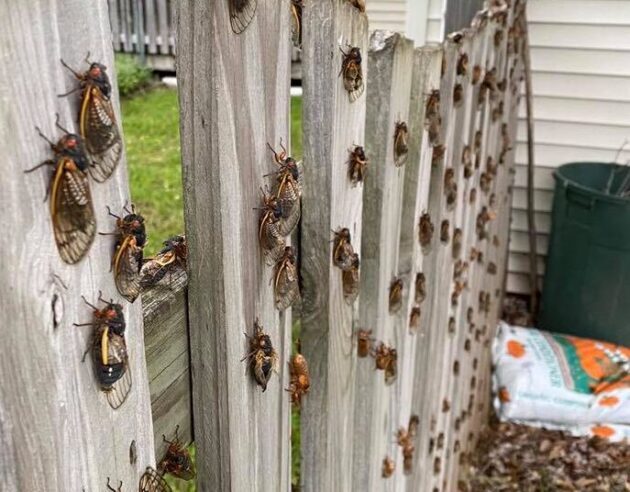
Since cicadas are quite common and my dog may have experienced them before, what’s so special about these 17-year-cicadas?
Their sheer numbers. Brood X is emerging by the billions all at the same time. This gives your pup ample opportunity to overindulge in an abundance of the protein-packed insects. During most summer cicada seasons, your dog may be able to snack on a couple of cicadas here and there. But this mass synchronized emergence means that your furry family members may have the ability to gobble several significant servings of cicadas if left unsupervised.
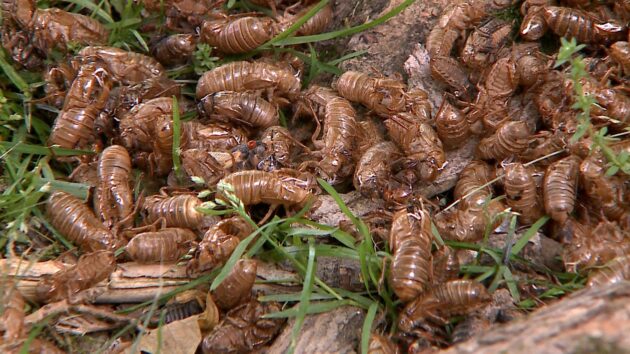
Will my dog get sick if he eats cicadas?
There’s always a risk of a reaction when an animal eats something outside of their regular diet. Consuming a couple of cicadas will most likely be harmless to your curious canine. Fortunately, cicadas do not produce toxins, so eating them won’t poison your pup.
“In most cases, your dog will be fine after eating a few cicadas. However, dogs that gorge on the large, crunchy insects will find the exoskeleton difficult to digest and can suffer serious consequences,” explains Dr. Jerry Klein, chief veterinary officer for the American Kennel Club.
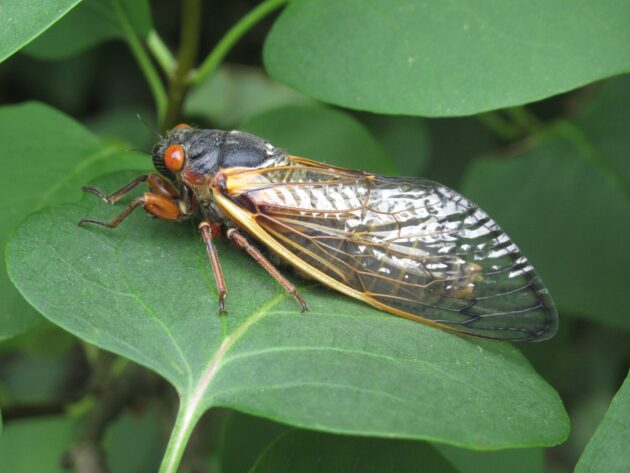
However, chowing down on too many cicadas could result in choking, nausea, vomiting, diarrhea, or lethargy for some dogs. If this is the case for your dog, call your vet immediately. The serious risk lies in eating too many cicadas at once.
Cicadas can pose a danger for dogs prone to overeating or for those that lack impulse control. The hard shell of the cicada can lacerate your dog’s intestines, which can lead to permanent damage or even death if a large enough amount of the insects are ingested. Labrador Retrievers and other pups prone to overeating are especially at risk.
“The big issue is that our dogs don’t know when to stop, and because there may be hundreds of cicadas available to them, some dogs will just keep eating one after the other,” said Dr. Georgina Ushi Phillips, a veterinarian from Florida.
Is there a treatment for eating too many cicadas?
If your dog gets sick from eating cicadas, the treatment usually includes IV fluids, pain medications, and anti-nausea drugs. If you’re ever questioning the health of your beloved furry family member, don’t hesitate to call your veterinarian.
Here are a few tips that may help prevent your pup from binging on a buffet of crunchy cicadas this summer:
- Teach and practice the “leave it” command
- Take short walks, keeping a close eye on your dog
- Keep them away from trees, where cicada often gather
- Don’t leave pets outside unsupervised, especially those with poor impulse control
Fortunately for us pet parents, cicadas only live for a few weeks in their adult form, so this threat won’t last too long.
So, prepare yourselves, pet parents of the Brood X emerging area. Your backyard, dog park, or daily walk may soon be the site of some summer cicada shenanigans!
H / T: nj.com
Featured Image: Fairfax County Park Authority / Facebook
 Toledo, United States.
Toledo, United States.